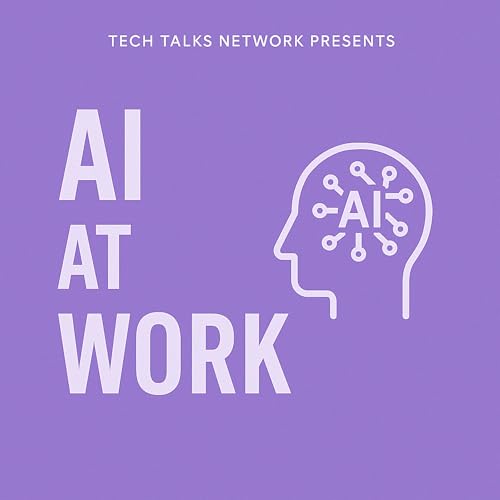
AI at Work
カートのアイテムが多すぎます
カートに追加できませんでした。
ウィッシュリストに追加できませんでした。
ほしい物リストの削除に失敗しました。
ポッドキャストのフォローに失敗しました
ポッドキャストのフォロー解除に失敗しました
-
ナレーター:
-
著者:
-
Neil C. Hughes
このコンテンツについて
What does AI really mean for the modern workplace, and are we ready for what comes next?
AI at Work is a podcast from the Tech Talks Network, the home of conversations that showcase the voices at the heart of enterprise technology. You may know me from Tech Talks Daily, where we explore a different area of innovation in every episode. This show offers a focused look at one of the most significant shifts in business: how artificial intelligence is transforming the way we work..
AI at Work is a podcast from the Tech Talks Network, the home of conversations that showcase the voices at the heart of enterprise technology. You may know me from Tech Talks Daily, where we explore a different area of innovation in every episode. This show takes a focused look at one of the biggest shifts in business: how artificial intelligence is transforming the way we work.
From intelligent automation to agentic AI and from the promise of workplace efficiency to the risks of unintended consequences, we aim to provide a grounded and accessible perspective on how AI is shaping the future of work.
If you’re using AI in your business or thinking about how to get started, this podcast is your chance to learn from the people already doing it.
Tech Talks Network 2025-
 31 分
31 分カートのアイテムが多すぎます
ご購入は五十タイトルがカートに入っている場合のみです。カートに追加できませんでした。
しばらく経ってから再度お試しください。ウィッシュリストに追加できませんでした。
しばらく経ってから再度お試しください。ほしい物リストの削除に失敗しました。
しばらく経ってから再度お試しください。ポッドキャストのフォローに失敗しました
ポッドキャストのフォロー解除に失敗しました
-
 2025/11/2044 分
2025/11/2044 分カートのアイテムが多すぎます
ご購入は五十タイトルがカートに入っている場合のみです。カートに追加できませんでした。
しばらく経ってから再度お試しください。ウィッシュリストに追加できませんでした。
しばらく経ってから再度お試しください。ほしい物リストの削除に失敗しました。
しばらく経ってから再度お試しください。ポッドキャストのフォローに失敗しました
ポッドキャストのフォロー解除に失敗しました
-
 42 分
42 分カートのアイテムが多すぎます
ご購入は五十タイトルがカートに入っている場合のみです。カートに追加できませんでした。
しばらく経ってから再度お試しください。ウィッシュリストに追加できませんでした。
しばらく経ってから再度お試しください。ほしい物リストの削除に失敗しました。
しばらく経ってから再度お試しください。ポッドキャストのフォローに失敗しました
ポッドキャストのフォロー解除に失敗しました


